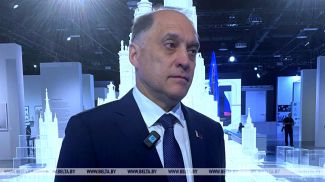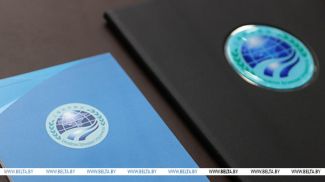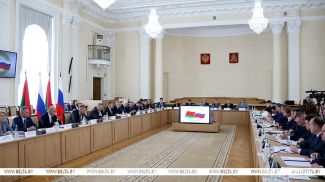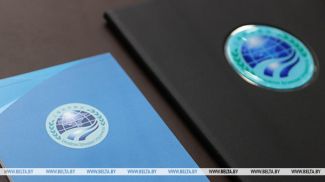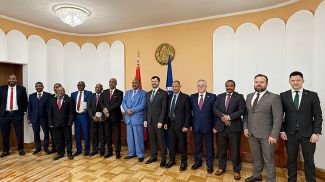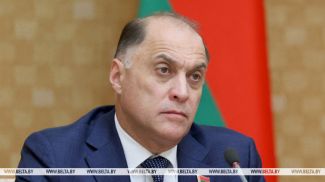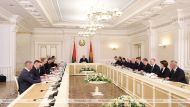MINSK, 1 June (BelTA) - Belarus will continue to attract international expertise to achieve the Sustainable Development Goals, Belarus' Deputy Minister of Foreign Affairs Andrei Dapkiunas said at a meeting of the Council for Sustainable Development which was hosted by the Ministry of Foreign Affairs on 1 June, BelTA has learned.
Andrei Dapkiunas outlined the key areas of Belarus' international activity in achieving the SDGs last year. In his opinion, the international cooperation aimed at achieving the SDGs has increased substantially after the country set up the national body led by the national coordinator. Almost simultaneously, the national coordinator presented a report on the progress in Belarus in achieving the SDGs at the UN in New York in July last year and held important meetings with the leadership of the UN Secretariat to identify the key areas and forms of cooperation.
Andrei Dapkiunas recalled that in November last year, Belarus received the UN mission to discuss the prospects for the activity with international experts. Following the mission, the parties designated four so-called platforms to accelerate the achievement of the SDGs. These include the transition to green inclusive and sustainable growth, focus on future generations, digital transformation and social innovation, gender-balanced society. The mission paid special attention to the activities to facilitate the achievement of SDGs at the regional and local levels.
“Having realized the regional and global context of the SDG activities, our international partners and us came to understand the need for a strong partnership of national coordinators for sustainable development goals.
Thus emerged a new international initiative in the field of sustainable development. An important step towards the practical implementation of the initiative was the regional forum of the national SDG coordinators in Minsk in February. It was attended by 36 countries of the region, as well as the UN deputy secretary general, the executive secretary of the UN Economic Commission for Europe, high-level representatives of UN agencies and other organizations. Many of those present today participated in the large-scale forum,” Andrei Dapkiunas noted.
Andrei Dapkiunas also stressed the importance of Belarus' participation in an annual event of the UN Economic Commission for Europe on sustainable development in Geneva in March. Belarus' proposal to set up a network of national SDG coordinators to share experiences, which was discussed at the Minsk forum, was sent to the UNDP and UNECE secretariats.
According to the deputy minister, the theme of sustainable development serves as a new non-political factor in relations with foreign countries. In particular, this was demonstrated during the visit of Belarus' national coordinator and representatives to Berlin in January this year. The trip enabled the parties to exchange experiences on the SDGs and opened up additional opportunities for expanding bilateral contacts.
Andrei Dapkiunas stressed that this format will be used in respect to other countries who have accumulated advanced experience in the field of development. Belarus is considering the prospects for bilateral activities with Austria, Belgium, Italy, Sweden, and Finland.




